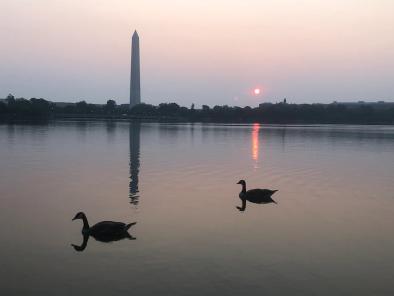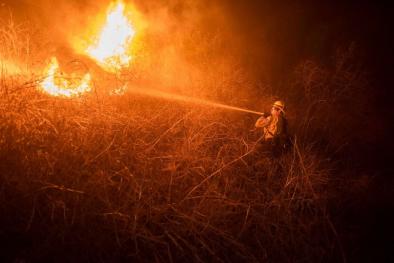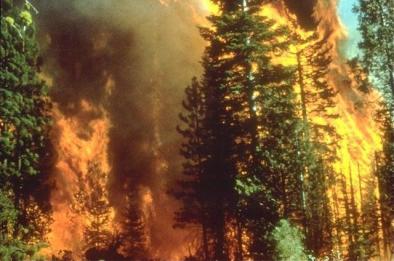Wildfire Smoke Rising Nationwide, Causing Major Health Problems

Across the country, people are breathing in more harmful smoke than before due to climate change-driven wildfires, threatening their health, an InsideClimateNews investigation based on an analysis of federal satellite imagery found. Looking at more than ten years of data analyzed down to the zip code level by NPR’s California Newsroom and Stanford University’s Environmental Change and Human Outcomes Lab, the analysis found that the number of days people are exposed to wildfire smoke has increased significantly, particularly since 2016. In parts of California, people are exposed to wildfire smoke for an average of three months a year, and the state has seen a major increase in health problems related to that smoke. Looking at 2018, a particularly bad year for fires, records show there were an additional 30,000 hospital admissions for respiratory and cardiac conditions and a major spike in prescriptions for the asthma medication albuterol. But the impacts are not limited to California; the analysis found a significant increase in Denver, Salt Lake City, rural Kentucky, West Virginia, Philadelphia and Washington. Climate change is driving this trend by increasing the size, frequency, and intensity of fires. This smoke is threatening gains made to reduce air pollution in the western region, particularly in regard to the dangerous pollutant PM2.5, which is small enough to be inhaled deep into the lungs. From 2000 - 2010, PM2.5 level in California, Nevada, and the Pacific Northwest had dropped significantly, but by 2020, those levels were the same or worse than they were in 2000. As with most environmental impacts, the effects are not felt equally. Older adults and especially those from low-income communities of color are disproportionately impacted due to other underlying health issues and housing that does little to protect residents from the smoke. “Literally no amount of exposure is safe,” said Stanford University professor Marshall Burke. “The lesson is that any amount is bad. And the more you get the worse it is.” (Story: InsideClimateNews; Data: InsideClimateNews; Midwest: KCUR; Climate Signals background: Wildfires)
Related Content





